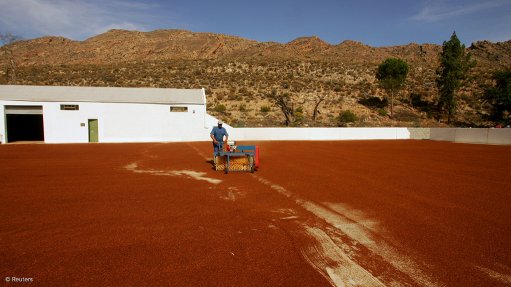
Photo by: Reuters
Consumers can expect to pay up to 90% more for Rooibos next year, as the current drought sweeping through parts of the country is expected to cause a “devastating” decline in output, the South African Rooibos Council warned on Thursday.
Marked in a recent report released by the United Nation’s food and nutrition working group, as the “worst drought” the country had experienced since 1992, it had already diminished Rooibos’s reserves, but given its prolonged nature, the economic effect would potentially be even more severe.
Owing to ongoing climate change occurrences, Rooibos farmers had already been adapting processes – from minimum tillage to conservation agriculture to preserve moisture and humus in soil – but the council believed this year’s impact was “off the charts”.
Having received very little or no rainfall during the important planting months of July and August, farmers in the Cederberg, Bokkeveld and other regions of the Western and Northern Cape were the worst affected.
“Although difficult to evaluate the true impact of the drought at this stage, we expect it to be significant. Output losses can only be quantified between January and May 2016, once the final volume of the harvest is known. Last year’s crop stood at 11 000 t, with total consumption at 15 000 t.
“Exports will decrease as a result of supply constraints, which will drive up the price of Rooibos, making it very expensive. As things stand, there will not be enough volume to service both the local and export demand, therefore, processors would need to prioritise sales between local industry demands and exports,” SA Rooibos Council spokesperson Ernest du Toit explained.
He added that prioritisation decisions would be based on many factors, including exchange rate, product quality and suitability for export and product availability from suitably certified producers. “In an extreme case, government may even look to apply duties to exports to preserve the local industry,” he noted.
The expected poor Rooibos crop yields also impact negatively on farm jobs and the communities that rely on the industry. Du Toit pointed out that less volume for harvest, compared with previous years, would result in lower demand for harvesters as the harvesting process was still done by hand.